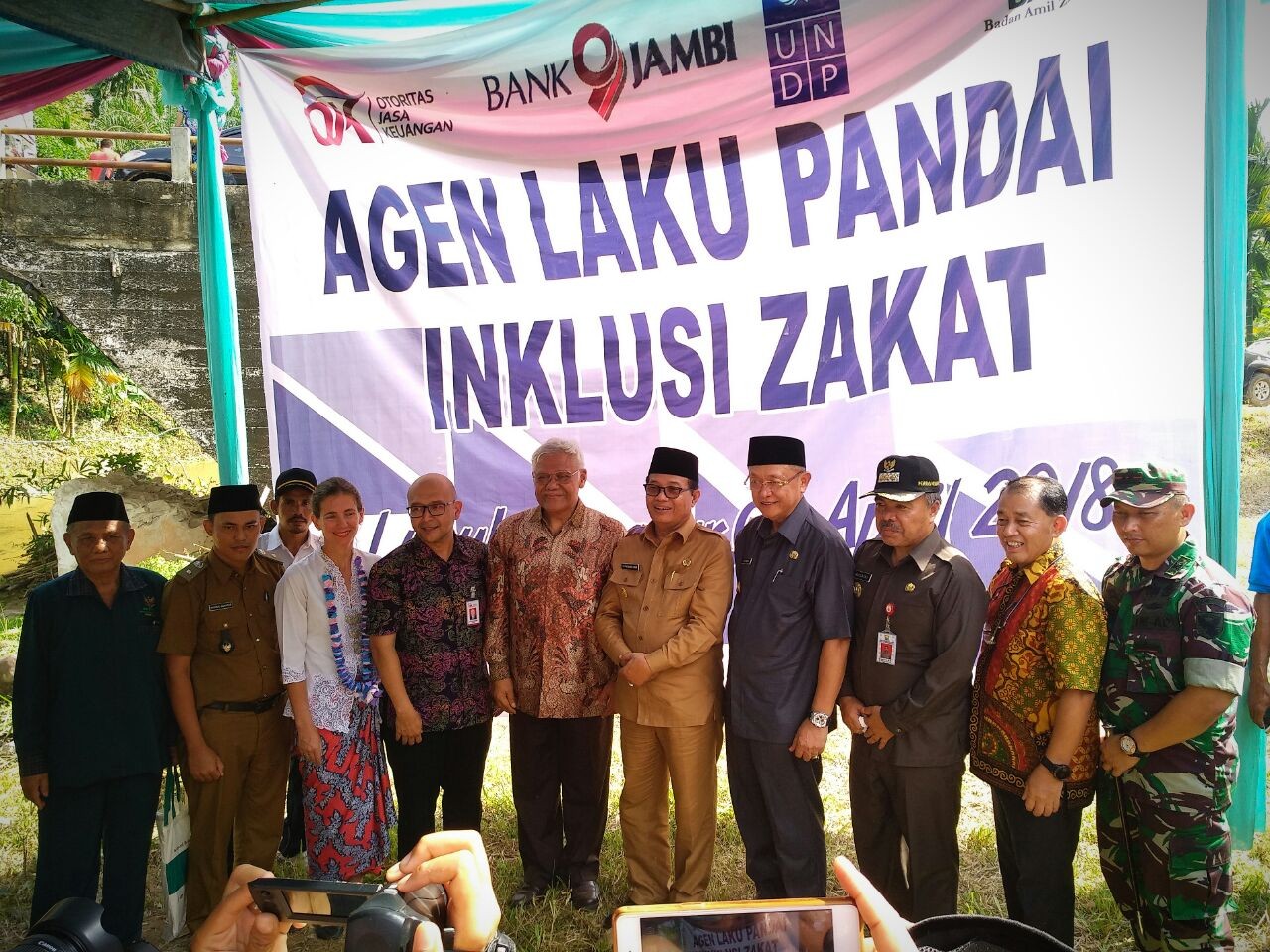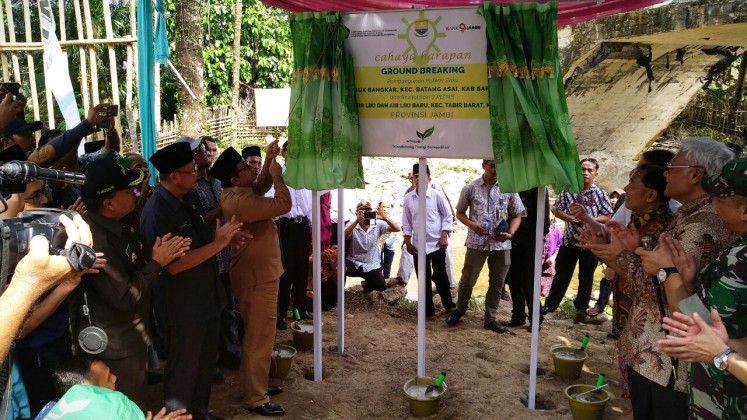Popular Reads
Top Results
Can't find what you're looking for?
View all search resultsPopular Reads
Top Results
Can't find what you're looking for?
View all search resultsNew BAZNAS power plant is Independence Day gift
Change text size
Gift Premium Articles
to Anyone
A
fter the placing of the first stone back in April, the new mini-hydropower plant (PLTMH), which was constructed by the National Alms Agency (BAZNAS), has finally started operating.
This alms-based poverty alleviation electricity generation project, which was done in collaboration with the United Nations Development Program (UBDP), is located in four locations in Jambi province. One unit can be found in Lubuk Bangkar village in Sarolangun regency, Jambi, while the other three are in Ngaol, Air Liki and Air Liki Baru villages in Tabir Barat sub-district, Merangin regency.
"Thank Allah this BAZNAS power plant is ready. We hope to Allah that by the end of August this can be officiated as a birthday present for the 73rd anniversary of Indonesian independence and allow our poor brothers and sisters in Jambi to enjoy illumination and win a victory over darkness," said Zainulbahar Noor, BAZNAS's vice chairman, on July 20.
According to Zainul, the groundbreaking for the PLTMH was conducted in Lubuk Bangkar village on April 6.
"This construction effort is part of the Market Transformation for Renewable Energy and Energy Efficiency through Design and Implementation of Appropriate Mitigation Actions in Energy Sector [MTRE3] project, which has the UNDP and the Energy and Mineral Resources Ministry working together to provide access to electricity by making use of renewable energy," he said.
The Lubuk Bangkar plant has a 60 kilowatt capacity and provides electricity to 283 households, two schools, a mosque, four prayer houses and various other forms of village infrastructure.
The number of recipients who will enjoy the benefits of all the plants stands at 4,000 in 803 households. To ensure the continuity of the plant’s operation and its revitalization units, each village has also seen various capacity improvements being made, such as the training of operators and power plant management organizations in the villages.
"This project is a partnership between BAZNAS and the UNDP to support the Sustainable Development Goals (SDG) by distributing alms," Zainul said.
The plant itself is located in a remote area that is difficult to reach by conventional means. Because the journey involves a steep dirt track without any asphalt, visitors can only reach the plant by using a four-wheel-drive vehicle. After reaching a small port, the next part of the route can only be taken by mini boat. Upon arriving at the destination dock, the next step requires visitors to use a motorcycle.
"Once you have arrived at the location, there are no hotels, so a crew of media visitors would have to stay with local residents," Zainul said.
The project is an alternative and innovative way of funding and pushing for the application of renewable energy for villages and remote regions in Indonesia. Access to electricity is important to reduce poverty and inequality.
"We live in an age where electricity can be enjoyed by people in various regions and it can give them better economic, educational and health prospects. But there are still siblings of ours that have no access to electricity, such as in Jambi province. That is why BAZNAS is committed to building the PLTMH as a way of reducing poverty in the country," Zainul said.
Based on data from the Energy and Mineral Resources Ministry, the electrification ratio of Jambi province as of December last year was only 91.40 percent, which is below the national average of 95.35 percent.
This inequality has led BAZNAS to channel US$350,000 (Rp 4.8 billion) in alms to build the PLTMH.
"This step by BAZNAS is our first alms-based support for the implementation of SDGs in Indonesia and even the world. That is why, prior to construction, there was already seven months of planning, including in the selection of a location that involved all relevant parties to ensure that the beneficiaries are villagers in remote regions that have a right to these alms," Zainul said.
Aside from BAZNAS, other organizations that also provided funding include Bank Jambi, which channeled Rp 3.76 billion in corporate social responsibility funding.
"The construction of the PLTMH is real proof of the first partnership between the UNDP and BAZNAS in innovating alms-based funding for sustainable development," Zainul said.
He added that this new access to electricity could support the reduction of poverty and the creation of social welfare, saying this could support SDGs, specifically, the ones on freedom from poverty and clean and affordable energy.
For context, the MTRE3 is a partnership between the UNDP and the Indonesian government that lasts for five years (2017 to 2022).
MTRE3 is aimed at supporting the government's target emissions for greenhouse gasses. This project is comprised of three main components. The first is the mitigation of climate change through renewable and efficient energies. The second involves market transformation through proper mitigation actions and the third is a system of measurements, reports and verification, as well as a national registry system for mitigation actions. The government's partner for executing this project is the Energy and Mineral Resources Ministry's directorate general of new and renewable energy.











